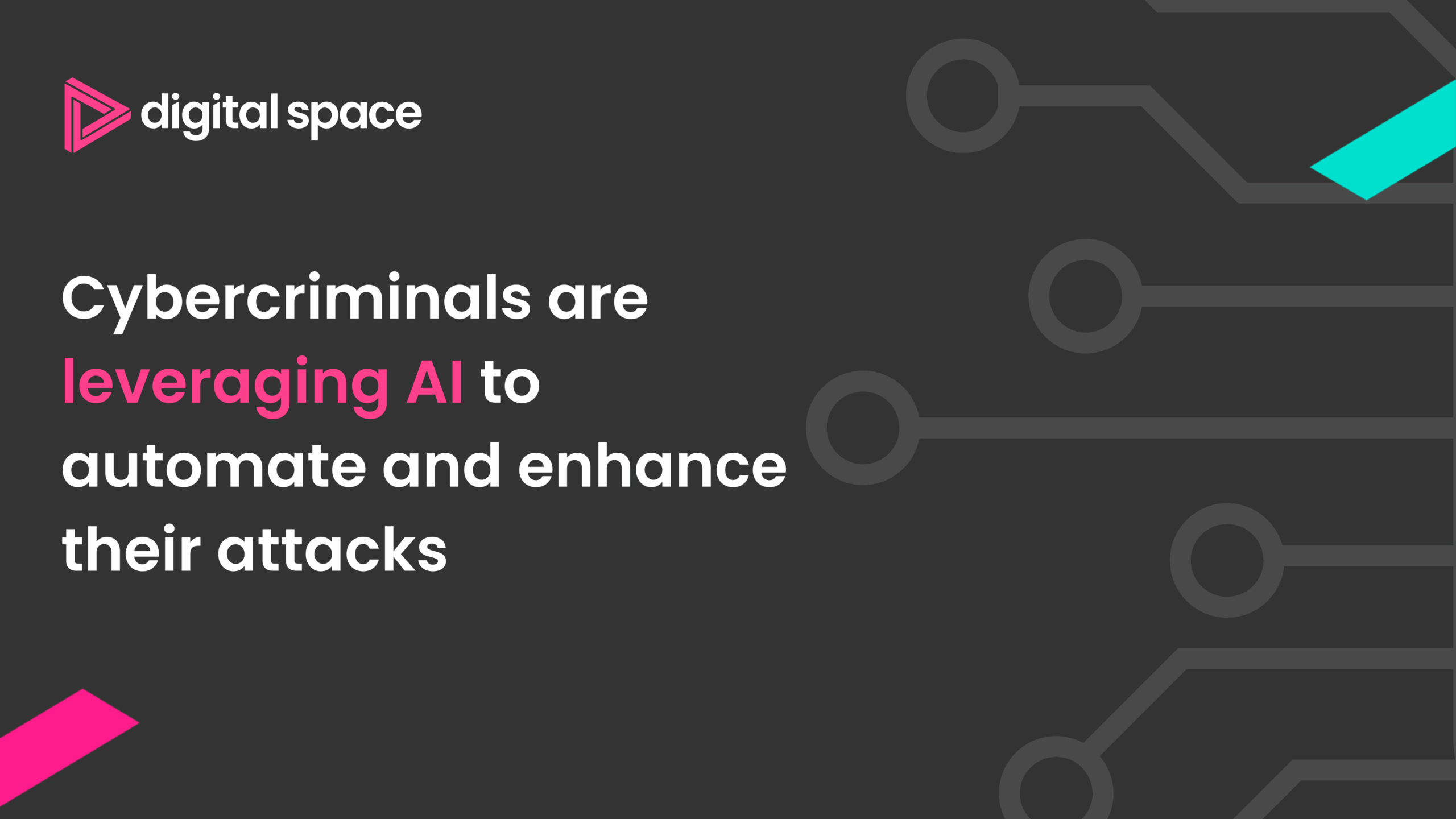Introduction
Artificial Intelligence (AI) has become one of the biggest buzzwords in cybersecurity today. While AI-driven security solutions are improving threat detection and response, cybercriminals are also leveraging AI to automate and enhance their attacks. With the widespread adoption of AI-powered tools like ChatGPT, Gemini, and Copilot, organisations need to assess the risks, define clear policies, and implement best practices to ensure secure AI usage.
The Double-Edged Sword of AI in Cybersecurity
Traditionally, cybersecurity threats were linked to hackers exploiting vulnerabilities through malware, phishing, and other attack vectors. However, AI is now playing a crucial role on both sides of the cyber battlefield:
AI-Powered Cyberattacks
- Cybercriminals use AI to generate more sophisticated phishing emails, create deepfake impersonations, and automate hacking attempts.
- AI-powered malware adapts dynamically to security defences, making detection more difficult.
- Attackers target AI platforms to gain unauthorised access to sensitive data.
AI-Driven Cyber Defences
- AI helps security teams detect anomalies, predict threats, and respond to cyber incidents faster.
- AI enhances authentication methods through biometric verification and behavioural analysis.
- AI-driven monitoring tools analyse vast amounts of data to prevent breaches before they happen.
Risks of Unregulated AI Usage
Many organisations integrate AI-driven tools into their workflows without fully understanding the security risks. Some of the biggest concerns include:
- Data Privacy Risks: Employees often upload sensitive information (e.g., payroll details, contracts) into AI chatbots without knowing where the data is stored or who has access.
- Unauthorised Data Access: AI platforms can become points of ingress for cybercriminals, leading to potential data breaches.
- Lack of AI Policies: Many companies lack clear guidelines on what can and cannot be shared with AI tools, increasing exposure to security risks.
The Importance of AI Security Policies
To mitigate risks, organisations must establish comprehensive AI security policies. Key steps include:
1. Define AI Usage Rules
- Establish clear policies on what data employees can and cannot input into AI platforms.
- Prohibit sharing confidential information, such as payroll data, personal details, and legal documents, with AI tools.

2. Educate Employees on AI Risks
- Conduct regular cybersecurity awareness training on safe AI usage.
- Teach employees how to recognise phishing attempts and deepfake threats.
3. Monitor and Enforce AI Security Measures
- Implement monitoring tools to track AI interactions and flag policy violations.
- Use endpoint security solutions to prevent unauthorised access to AI platforms.
Emerging Threats: AI as a Cyber Attack Vector
Cybercriminals are shifting their focus towards AI platforms as potential attack vectors. Some of the most common AI-related attack techniques include:
- Hijacking AI Credentials: Hackers gain access to AI accounts and extract sensitive information from chat history.
- Manipulating AI Responses: Adversarial attacks trick AI models into providing misleading or harmful information.
- AI Data Scraping: Attackers use AI tools to gather confidential data from compromised accounts.
Final Thoughts
AI is revolutionising cybersecurity, but it also introduces new risks that organisations must address proactively. By implementing strong AI policies, educating employees, and monitoring AI usage, businesses can harness AI’s potential while mitigating its threats.
The cybersecurity landscape is constantly evolving—staying informed and proactive is key to maintaining a secure digital environment. How is your organisation preparing for AI-driven cybersecurity challenges?
Take Action with Digital Space and CyberQ Group
Navigating the complexities of AI-driven cybersecurity requires expert guidance and proactive strategies. Digital Space and CyberQ Group are here to help your business stay secure in the digital era. Our team of cybersecurity experts provides tailored solutions for everything from AI security policy development to advanced threat detection and response. Contact us today to safeguard your organisation against evolving cyber threats and build a resilient security framework.
Chris Woods, Founder and CEO of CyberQ Group
“At CyberQ Group, we have consistently pushed the boundaries of cybersecurity and data protection, challenging assumptions and driving continuous improvement. Our partnership with Digital Space is designed to enhance service offerings and bolster data protection for customers. This strategic alliance aims to provide comprehensive cybersecurity solutions and more, leveraging the strengths of both organisations to safeguard customer data and reputations.”








